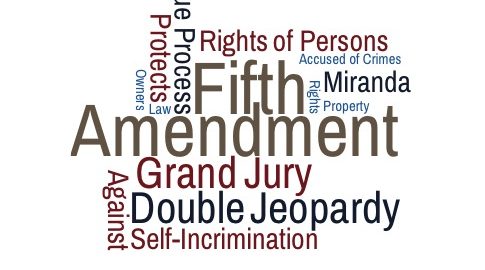Gamble v. United States
No. 17-646
U.S. Supreme Court
Decided: June 17, 2019
ISSUE
Whether the separate sovereigns doctrine or dual sovereigns doctrine is unconstitutional under the Double Jeopardy Clause of the Fifth Amendment where the federal government charges a defendant with a federal offense for possession of a weapon when the defendant has already pleaded guilty to a State Penal Law offense stemming from possession of the same weapon.
HOLDING
The U.S. Supreme Court declined to overturn the separate sovereigns doctrine and held: a) the separate sovereigns doctrine does not implicate the double jeopardy clause and b) the same conduct prosecuted by different sovereigns does not constitute the same offense as in a case of double jeopardy.
FACTS OF THE CASE
In 2015, petitioner Gamble was charged with violating state drug laws and Alabama’s felon in possession of a firearm statute. The federal government stepped in the prosecute Gamble for the same act–felon in possession of a firearm–but under 18 U.S.C. §922(g)(1).
Gamble moved to dismiss, arguing that the federal and state firearm indictments violated the Double Jeopardy Clause under the Fifth Amendment because each indicted him for the same “offence”. The District Court denied Gamble’s motion under the ground that prosecutions by different sovereigns are not prosecutions for the same offense for double jeopardy purposes.
Gamble pled guilty to the federal offense but preserved the right to challenge the denial of his motion to dismiss on double jeopardy grounds. The denial of his subsequent appeal to the Eleventh Circuit again cited the dual-sovereignty doctrine. Gamble asked the Supreme Court to overturn the dual-sovereignty doctrine and the Court granted certiorari.
COURT’S ANALYSIS
The opinion, delivered by Justice Alito, began by addressing the common misconception that the separate sovereigns doctrine is an “exception” to the double jeopardy clause. However, the Court pointed out, the double jeopardy clause “ . . .protects individuals from being put twice in jeopardy ‘for the same offence’, not for the same conduct or actions,” thus removing any relevance between double jeopardy exposure and separate sovereigns prosecution. Grady v. Corbin, 495 U.S. 508, 529 (1990). The separate sovereigns doctrine doesn’t allow for someone to be convicted of the “same offense” because an offense under the federal law and an offense under a state law is not the “same offense.”
The analysis continued by explaining that “offenses” are defined by laws; since sovereigns have their own set of laws, they also have their own set of offenses. In this instance, according to the Court, though Gamble’s conduct–being a felon in possession of a firearm–was indistinguishable, each offense for which Gamble was indicted, as a result of the conduct, were driven by distinct laws of the state of Alabama and the federal government.
Gamble also urged the Court to consider that the history behind the ratification of the double jeopardy clause is contrary to the Court’s previous rulings, which have continued to uphold the separate sovereigns doctrine. While Gamble argues the Supreme Court should overrule this line of decisions, the Court held that Gamble failed to provide a sufficient reason to do so and his backing of historical evidence was unconvincing. Even if the Court did credit Gamble’s historical argument, they held that a departure from established precedent “demands special justification” that is “something more than ambiguous historical evidence.”
Justice Thomas’ concurring opinion joins in maintaining the separate sovereigns doctrine but departs from the majority in one key part. Stare decisis, according to Justice Thomas, has no place in swaying the opinion of the justices of the Supreme Court of the United States. As Justice Thomas puts it bluntly – “[w]hen faced with a demonstrably erroneous precedent, my rule is simply: We should not follow it.”
In her dissent, Justice Ginsburg looks at the separate sovereigns doctrine from the point of view of the individual rather than the government. Justice Ginsburg asserts that the Double Jeopardy Clause “safeguards the person and restrains the government.” Allowing the state and federal government to engage in successive prosecutions flies in the face of what Ginsburg claims is the purpose of our system of government–to “operate as a double security for the rights of the people.” She would have the majority hold that the unlike foreign nations, the United States and its constituent states are “parts of one whole” which compose one people, and that the Federal and State Governments should be disabled from accomplishing together what neither government could do alone–prosecute an ordinary citizen twice for the same offense.
